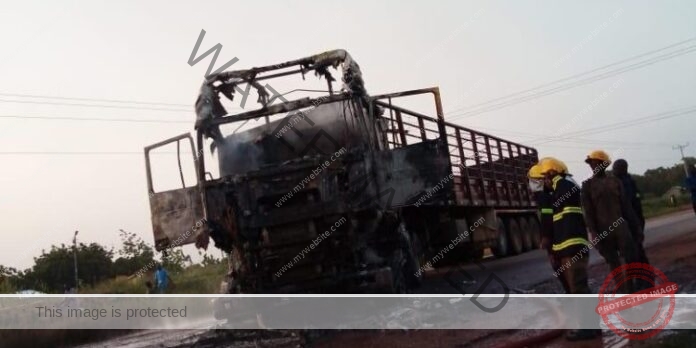Eight people have tragically died following an ambush on the Bolgatanga-Tamale highway near Gbimsi, a village close to Walewale. Gunmen reportedly
Eight people have tragically died following an ambush on the Bolgatanga-Tamale highway near Gbimsi, a village close to Walewale.
Gunmen reportedly set up roadblocks along the highway on Sunday, targeting vehicles and individuals travelling through both Gbimsi and Walewale Town.
Travellers caught in the blockade faced intense scrutiny as the assailants checked identities to identify specific targets. In the attack, eight people lost their lives, and two vehicles were set on fire, prompting alarm over highway security.
One survivor, recounting his ordeal, said, “I was travelling from Sunyani to Paga. Upon reaching Walewale, people had mounted roadblocks and were searching for individuals to kill. The incident lasted for more than an hour, yet security did not respond.”
This violence is suspected to stem from the resurgence of the Bawku Conflict, which has recently re-escalated after a period of calm in the region.
In response, the Ghana Police Service has pledged to heighten security presence along the highway. The Police, in an official statement, affirmed their commitment to stabilising Bawku, surrounding areas, and the Bolgatanga-Walewale-Tamale route.
Additional Police and Military teams have been deployed to Bawku and nearby areas, as well as to the highway, to bolster security and manage traffic. The statement reassured the public: “The security agencies would like to once again assure the public that we are committed to maintaining peace, security, law and order in Bawku and its environs.”
Violence in northern Ghana, particularly in areas like Bawku, has been a recurring issue, often rooted in ethnic tensions, land disputes, and chieftaincy conflicts. The Mamprusi and Kusasi communities in Bawku have experienced significant clashes, resulting in loss of life, displacement, and increased insecurity.
These conflicts are aggravated by historical grievances and competition for resources, which often lead to cycles of violence. The impacts are profound, affecting not only the immediate communities but also broader regional stability. Government and local leaders’ efforts to mediate and resolve these tensions have faced challenges, with sporadic outbreaks of violence making it difficult to achieve lasting peace.
